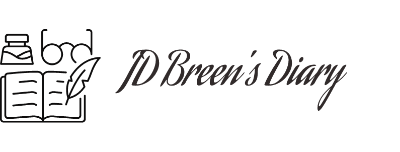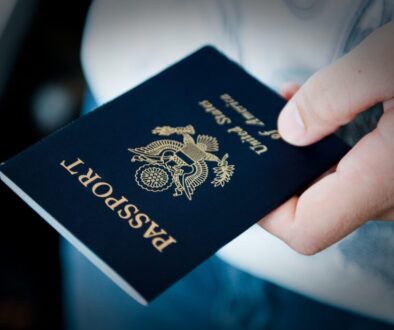The Best President in American History

Atlanta, GA
The most rewarding parts of many trips are those that take us off the beaten path. We feel obligated to see the popular attractions. We do our duty, check the sights off the list, then head back to the hotel bar.
But the best experiences, the ones we want to simultaneously share with others and keep to ourselves, are often the secret gems that lie beyond the pages of guidebooks, and that recuse themselves from the passbooks of tourists. They are the local dive and the neighborhood pub, where the people are real and the lies are true.
The same can be said of our presidents. The best known and most lauded are those we are required to learn about. They tend to be those who confronted (or created) a challenge, met it head on…and made it worse. For not allowing their oath of office to limit their possibilities or to constrain their “greatness”, their stories fill pages of textbooks, and their faces occupy countless frames on classroom walls.
But much as rap music fills the airwaves while Mozart languishes at lower frequencies, the redeeming presidents are usually the men the kids don’t know. These leaders knew their limits, left local concerns to local people, and respected nature enough to let it take its course.
They didn’t mistake knowledge for wisdom, or information for answers. They were wise enough to know that if there’s no solution, there’s no problem…so they didn’t go crafting the one or causing the other. They were more than willing to bask in the hidden glow of their glorious ignorance and constitutional constraints.
There weren’t many of these worthies. We’ve covered a couple, and will discuss several more. But today we meet the best. He is, of course…
John Tyler. When William Henry Harrison honored his office by leaving it early, John Tyler became the first Vice President to ascend the presidential chair.
When he did, the process was unclear. Was Tyler there to complete Harrison’s term? Or was he, like a compact spare, merely a temporary fix till a real tire could be found? Would a special election need to be held? If so, when? The Constitution wasn’t clear on this till the 25th Amendment was ratified a century and a quarter later.
Many of these “legitimacy” questions were opportunistically raised by ambitious Whigs who supported Harrison, but despised Tyler…whom they derisively called “His Accidency”. Like any incoming hangers-on, they were hungry for power and for posts. But they’d barely begun to douse their snouts when the honey was taken away. Tyler was not about to provide a new pot. He would soon attack both Hamiltonian patronage and Jacksonian spoils.
When the new president took his chair, Harrison‘s cabinet still planned to produce his play. They would let the show go on, with the script they’d written for the previous actor. But Tyler planned to direct his own administration, as well as play its leading rôle. If Harrison’s stagehands disapproved, Tyler would gladly accept their resignations. And, from most of them, he did.
John Tyler might have been the best president in American history. He was strong-willed, and asserted his authority. Yet he respected his limits. Where he had a part, he played it. But he never stepped on another’s lines. His primary obligation was to defend his oath. Notwithstanding incessant political threats, he did it as well as anyone.
As a US Senator, despite enormous pressure and considerable risk to his career, Tyler voted against the outrageous “Force Bill”. This authorized Andrew Jackson to send troops into South Carolina over the state’s threat to nullify the “Tariff of Abominations” within its borders. While opposing the Second Bank of the United States, Tyler challenged Jackson’s expansion of executive power when Old Hickory tried to dissolve it.
His objectives were simple, straightforward, and sound. Like Thomas Jefferson…and all the best presidents…Tyler wanted to retire the public debt, favored a foreign policy of peaceful neutrality, wanted expenditures only for specific purposes, and insisted on a government small in size to limit its scale of corruption.
His constitutional principles became thorns in the side of back room deals and crony schemes. When a bill passed Congress to recharter a Bank of the United States, Tyler vetoed it, as he had every other bank hill he’d been sent. This enraged members of the Whig Party, of which Tyler was nominally the head.
His veto message should adorn the monument he sorely lacks on the banks of the Potomac, and should be inscribed on the interior walls of the Oval Office. He reiterated his long-held opinion that Congress has no authority to charter a bank. He then emphasized his own constitutional duties, which were to protect the people from usurped power.
His oath prohibited him from signing a bill he deemed to be unconstitutional. As he explained:
“…I took an oath that I would ‘preserve, protect, and defend the Constitution of the United States.’ Entertaining the opinions alluded to and having taken this oath, the Senate and the country will see that I could not give my sanction to a measure of the character described without surrendering all claim to the respect of honorable men, all confidence on the part of the people, all self-respect, all regard for moral and religious obligations, without an observance of which no government can be prosperous and no people can be happy. It would be to commit a crime which I would not willfully commit to gain any earthly reward, and which would justly subject me to the ridicule and scorn of all virtuous men.”
Never mind constitutionality. When did we last have a president who cared a whit about self-respect or moral obligations? Not only would signing this legislation be unconstitutional, it would be a crime! Quite clearly, John Tyler couldn’t live with himself if he signed unlawful laws, despite the political heat he would take for preserving his principles and those of his oath.
On Capitol Hill, the flames were rising. With only cosmetic changes, another bank bill was sent to Tyler. He again vetoed it. The furious Whigs responded by gathering on the Capitol steps, and publicly expelling him from the party. John Tyler couldn’t have cared less. More bills came down Pennsylvania Avenue, more vetoes went back up.
Party leaders continued their efforts to isolate Tyler, who had no vice president. Thinking they would force the president to rethink his position or perhaps resign, almost the entire cabinet announced they would quit. Tyler wished them well, and let them go. He then installed his own men, and the vetoes continued.
In another message, Tyler reaffirmed the veto “as a great conservative principle of our system, without the exercise of which on important occasions a mere representative majority might urge the government in its legislation beyond the limits fixed by its framers, or might exert its just powers too hastily or oppressively. It is a power which should be most cautiously exerted, and perhaps never except in a case involving the public interest or one in which the oath of the president, acting under his convictions, both mental and moral, imperiously requires its exercise.”
For his veto statements alone Tyler’s face should be carved on a mountain. It’s not just the prerogative, but the duty, of a president to veto legislation if it breaches the bounds of constitutional restraint. Popular will and majority vote are irrelevant to these obligations.
Flummoxed by this brazen burst of principle, Tyler’s impetuous enemies drafted articles of impeachment…for vetoing legislation! The vote failed, but Tyler kept going. Taking up the gauntlet, he rejected tariff bills and internal improvement legislation, after the latter of which he wrote,
“At the adoption of the Constitution, each state was possessed of a separate and independent sovereignty…. The Articles of Confederation in no way affected this authority or jurisdiction, and the present Constitution, adopted for the purpose of correcting the defects which existed in the original Articles, expressly reserves to the states all powers not delegated. No such surrender of jurisdiction by the states was made to this government by any expressed grant.”
Not only would modern presidents never write things like this, they’d barely be able to understand them. Unfortunately, most of the people who vote for them don’t either, which is one reason they get who they deserve.
As a young boy, John Tyler joined his father to dine with Thomas Jefferson, whose philosophy stayed with him throughout his life. After he died, during the war that would kill off the republic, the old Jeffersonian principles that Tyler advocated continued to fade. Today, in a Virginia rest home, a glimmer remains. But no memories.
Until last September, two of Tyler’s grandsons remained among us. One still is. After a series of strokes in the last decade, Harrison Tyler (named for the man to whom his grandfather was Vice President) has no recollection of yesterday, or of today.
But on his face, the lines tell an impressive tale…of being a generation removed from Thomas Jefferson, and of being raised in the rural hunting lodge of the best president we’ve ever had.
JD



